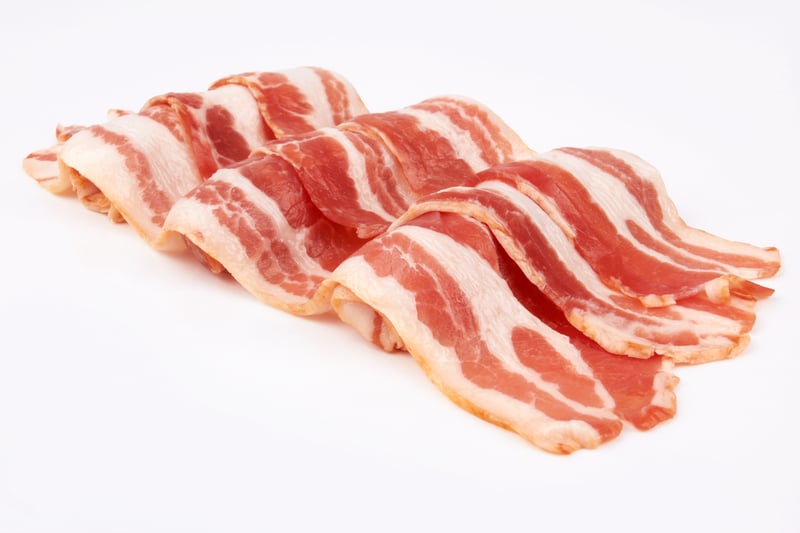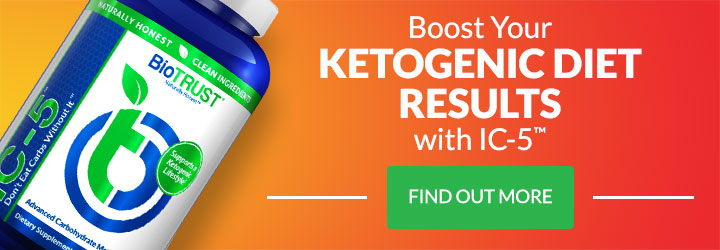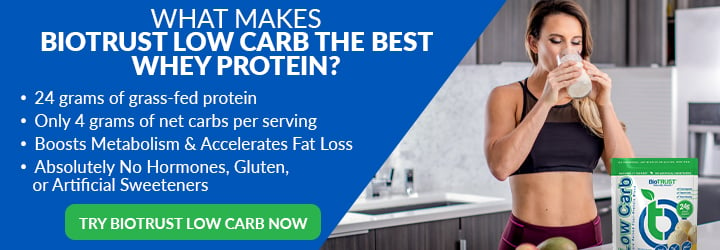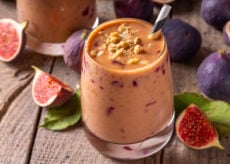Food Faceoff: What’s the Best Type of Bacon For Your Health?

If you’re reading this, I bet you like bacon. In fact, I’d double-down on it. But what do you think is healthier: pork or turkey bacon? Turkey bacon, right? Is turkey bacon even bacon? Where does vegan bacon fit into the mix? What about beef, bison, or lamb? Relax, bacon lover, in this bacon breakdown, we’ll give you the lowdown on the best type of bacon. We think you’ll be (pleasantly) surprised!
What is Bacon?
Broadly defined, bacon refers to cured pork belly that ends up in strips (although sometimes formed into circular patterns). Along these lines, the USDA generally defines bacon as the cured belly of a swine carcass. In other words, bacon comes from pigs—specifically, the belly of a pig—and in the United States, there are two common systems for producing bacon:
- Dry Cure, which involves a mixture of curing ingredients rubbed on all surfaces of the pork belly
- Wet Cure (or pickle cure), which involves a brine solution made up of salt and water (most commercially processed bacon is wet-cured)
For what it’s worth, Canadian bacon is technically not bacon since it is made with the pork loin (not the belly), which is smoked and fully cooked. That doesn’t make it bad; it just doesn’t make it bacon.
What is Turkey Bacon?
For various reasons (which we’ll get to in a moment), turkey bacon is often lauded as being a healthier alternative to real bacon. But when it comes to really deciding what’s the best type of bacon, is there any truth to that?
With our working definition of bacon, let’s answer another question: What is turkey bacon? In a word, “facon.” Or, in two words, “fake bacon,” “NOT bacon,” or “imitation bacon”; pick your poison.
To illustrate, take a look at the ingredients from the package of one popular brand of turkey bacon:
Poultry ingredients (turkey, mechanically separated turkey), water, sugar, salt, contains 2% or less of canola oil, sunflower oil, natural flavor, sodium erythorbate, sodium phosphate, sodium nitrite.
For starters, turkey bacon comes from, well, turkey—not pork. Strike one. Secondly, the list of ingredients makes it clear that turkey bacon does not come from a single, intact cut of meat. Rather, it is a collection of mechanically-separated turkey parts that have been ground together and shaped into “bacon.” Strike two.
While the addition of some salt and a bit of sugar is a part of the curing process for real bacon, with turkey bacon, you’ll also often see the addition of refined, bleached, and deodorized (RBD) vegetable oils. In this case, you’ve got a double-whammy of canola and sunflower oils. As we’ve talked about before, these poor-quality RBD oils are highly susceptible to oxidation, which can impart free radical damage and inflammation. That’s bad news.
So, why do so many people turn to turkey bacon? Simply put, we’ve been misled to believe it’s the best type of bacon. We’ve been brainwashed to believe that real bacon is the fastest way to clog our arteries, increase blood pressure, and cause cancer thanks to the saturated fat, cholesterol, sodium, and nitrates.
Clearly, turkey bacon is the best type of bacon since it contains less saturated, cholesterol, and (typically) sodium, right? Wrong, and we address each of these misconceptions in this article. And if you reach for turkey bacon because real bacon is a processed meat, and you “know” that processed meat is linked to cancer and heart disease, it’s time to reconsider. In fact, if you consider bacon a “processed” food, then most turkey bacon is an ULTRA-processed food.
What Else is NOT Bacon?
When it comes to arguments over the best type of bacon, turkey is not the only imposter. There’s no shortage of imitation bacon, and while many of these vegan options may be “light,” “low-fat,” “cholesterol free,” “free of saturated fat,” and “contain no added nitrates,” they are essentially ultra-processed junk food.
Here’s a sampling of the ingredients you’ll find in these other forms of facon:
- Soy protein
- Soybean oil
- Textured or hydrolyzed vegetable protein (which is code for soy, gluten, and/or corn protein)
- Wheat gluten
- Canola oil
- Maltodextrin
- MSG
- Artificial colors, flavors, sweeteners, and preservatives
- A laundry list of additives that neither you nor I could pronounce
And these are supposedly “smart” and “healthy” options. Unfortunately, my vegan friends, these are not only not the best type of bacon, they are garbage that could possibly be harmful. Even though it’s still NOT bacon, coconut bacon may be a viable option for plant-based eaters.
Now, if you don’t eat pork for religious reasons or otherwise but you do consume animal products, you’re not completely out of luck. While pork bacon is still the best type of bacon (technically speaking), there are some cured meats that actually resemble real food, including:
- Beef
- Bison
- Duck
- Elk
- Lamb
So, What is the Best Type of Bacon?
So, what is the best type of bacon? At the end of the day, there’s only one bacon: REAL bacon. If you’ve been misled to believe that you “can’t” eat pork bacon, forget the ultra-processed facon and treat yourself to the real deal. If you’re a plant-based eater, I’d suggest forgoing the fake stuff altogether.
Having said that, if you’re amenable to animal products, there are some other cured non-pork options that (unlike turkey bacon) actually more closely resemble real food (and real bacon), including bison, beef, lamb, duck, and elk.
All that being said, even when you’re eating the real thing, some options are better than others. Here are some key points that will help you make sure that you’re choosing the best type of bacon:
- Choose bacon from organic, pastured, humanely-raised pigs, which are fed a healthier diet and are not treated with synthetic growth hormones or antibiotics.
- Uncured bacon may sound/seem healthier, but it doesn’t appear to offer an advantage. Bacon that’s marketed as “uncured” is still cured; while it does not contain added artificial nitrates, its nitrates come from natural sources, usually celery juice or powder.
- Look for bacon with minimal additives, such as no added sugar, gluten, MSG, lactose, etc.
- Look for bacon with a high protein density (around 30% or so) and a good protein to fat ratio (1:1 or better).
- Cook your bacon carefully as to avoid burning and over-cooking while still cooking it through.
- Most of all, ENJOY your bacon!







